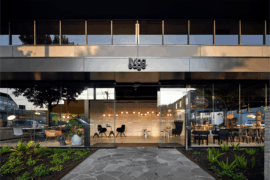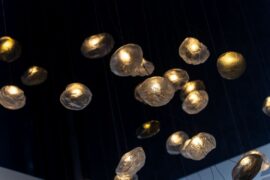Life Cycle Assessment (LCA) is a method of evaluating the potential environmental impacts of products and services. This evaluation is based on the whole life cycle of the product/service, or a cradle-to-grave approach, with typical stages including extraction of raw materials, processing, manufacturing, packaging and distribution, use, and waste disposal including landfill, reuse and recycling.
Life Cycle Assessment (LCA) is a method of evaluating the potential environmental impacts of products and services. This evaluation is based on the whole life cycle of the product/service, or a cradle-to-grave approach, with typical stages including extraction of raw materials, processing, manufacturing, packaging and distribution, use, and waste disposal including landfill, reuse and recycling.
April 4th, 2011
Life Cycle Assessment (LCA) is a method of evaluating the potential environmental impacts of products and services. This evaluation is based on the whole life cycle of the product/service, or a cradle-to-grave approach, with typical stages including extraction of raw materials, processing, manufacturing, packaging and distribution, use, and waste disposal including landfill, reuse and recycling.
The Centre for Design’s next 2-day LCA Introduction course is being held on Wednesday November 24 and Thursday November 25. The LCA course is a detailed introductory course starting from the basics of LCA and then providing participants with practical experience working with LCA and an appreciation for the major methodological issues to be worked through when reading, reviewing or undertaking LCA.
cost: $1045
INDESIGN is on instagram
Follow @indesignlive
A searchable and comprehensive guide for specifying leading products and their suppliers
Keep up to date with the latest and greatest from our industry BFF's!

For Aidan Mawhinney, the secret ingredient to Living Edge’s success “comes down to people, product and place.” As the brand celebrates a significant 25-year milestone, it’s that commitment to authentic, sustainable design – and the people behind it all – that continues to anchor its legacy.

A longstanding partnership turns a historic city into a hub for emerging talent

Woods Bagot has conquered its competition in the bid to design the adaptive reuse of Penrith’s former Council Chambers into a new commercial building set to revitalise the CBD.

In 2023 the INDE.Awards is joined by an exemplary group of architects and designers who form the official INDE.Awards Jury. We introduce you to your Jury for 2023.

Behind the high fantasy and lighthearted whimsy of Pattern Studio’s work lies a deep consideration for functionality and detailing. Just two years into business, this unique, layered approach has garnered the studio international acclaim with an Honourable Mention at the INDE.Awards 2018.
The internet never sleeps! Here's the stuff you might have missed

Lighting becomes storytelling in the hands of Bocci and Moooi – brands championed by Space Furniture.

With its new Series 8 Ovens, Bosch leverages the intuitive appeal of quiet efficiency to address the most pressing challenge of a modern home chef: making healthy cooking not only delicious but quick, effortless and inspired.